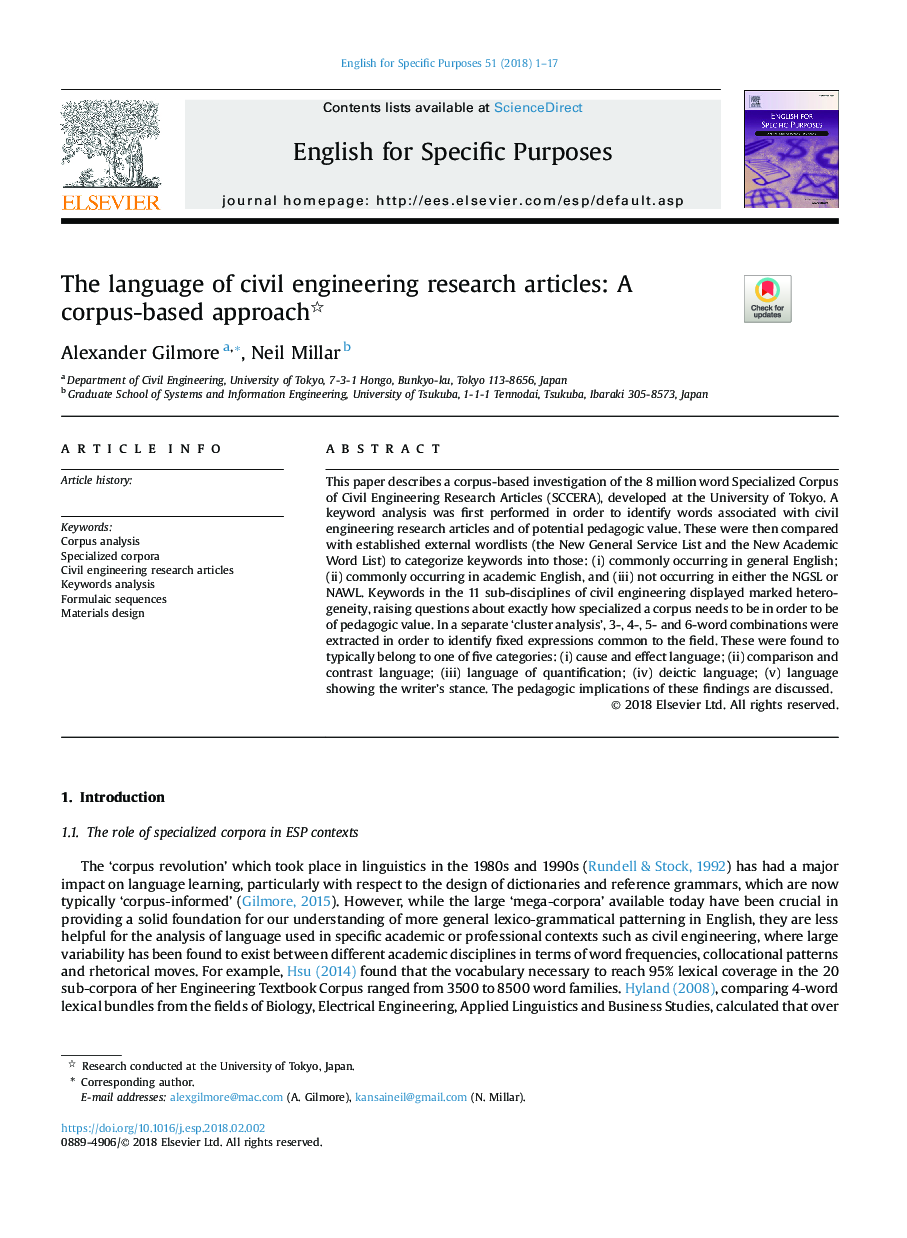| Article ID | Journal | Published Year | Pages | File Type |
|---|---|---|---|---|
| 6841011 | English for Specific Purposes | 2018 | 17 Pages |
Abstract
This paper describes a corpus-based investigation of the 8 million word Specialized Corpus of Civil Engineering Research Articles (SCCERA), developed at the University of Tokyo. A keyword analysis was first performed in order to identify words associated with civil engineering research articles and of potential pedagogic value. These were then compared with established external wordlists (the New General Service List and the New Academic Word List) to categorize keywords into those: (i) commonly occurring in general English; (ii) commonly occurring in academic English, and (iii) not occurring in either the NGSL or NAWL. Keywords in the 11 sub-disciplines of civil engineering displayed marked heterogeneity, raising questions about exactly how specialized a corpus needs to be in order to be of pedagogic value. In a separate 'cluster analysis', 3-, 4-, 5- and 6-word combinations were extracted in order to identify fixed expressions common to the field. These were found to typically belong to one of five categories: (i) cause and effect language; (ii) comparison and contrast language; (iii) language of quantification; (iv) deictic language; (v) language showing the writer's stance. The pedagogic implications of these findings are discussed.
Related Topics
Social Sciences and Humanities
Arts and Humanities
Language and Linguistics
Authors
Alexander Gilmore, Neil Millar,
